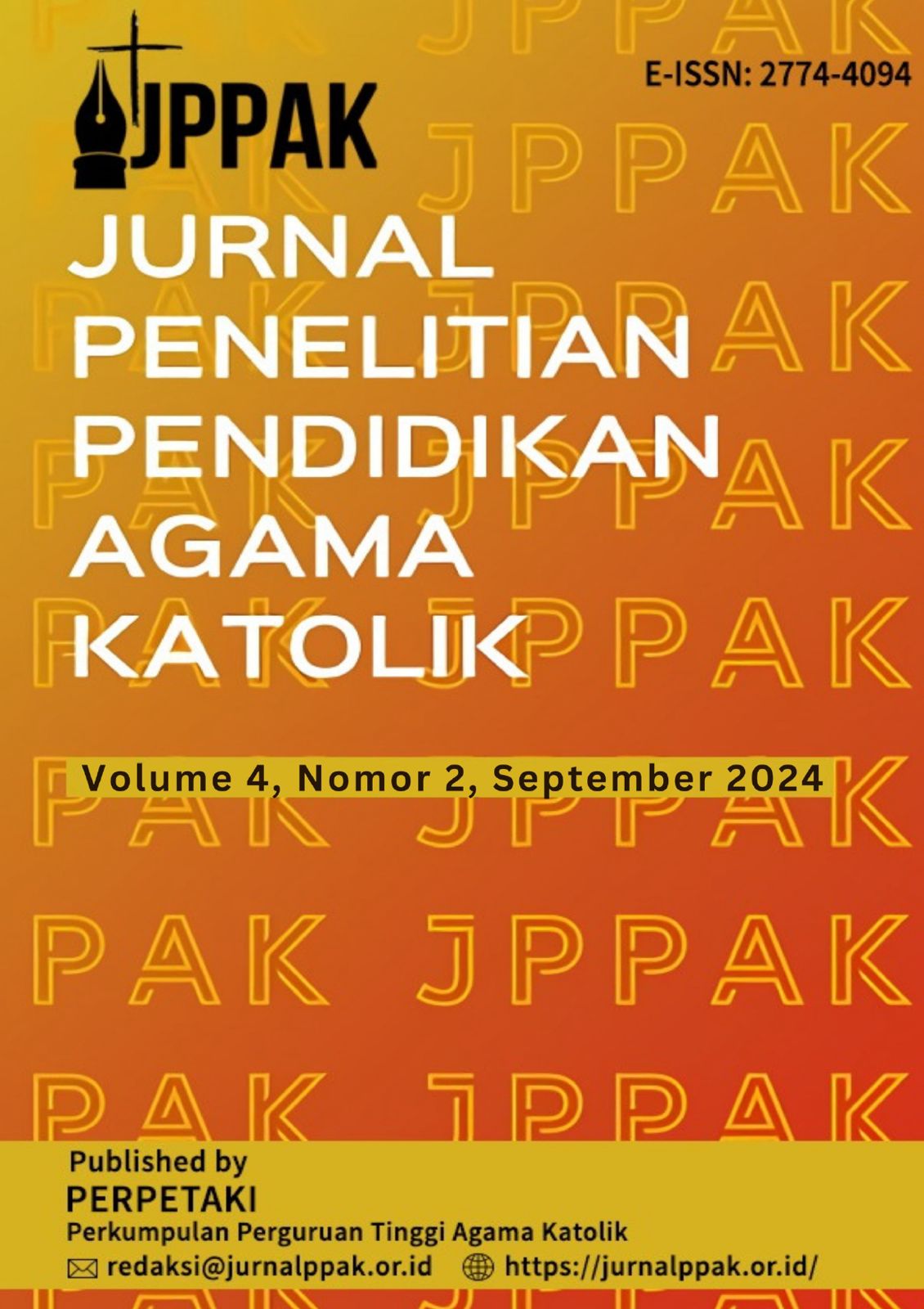Understanding of Human Rights and The Response of Catholic Religious Higher Education Students to Sensitive Issues of Human Rights
DOI:
https://doi.org/10.52110/jppak.v4i2.157Keywords:
Human Rights, Sensitive Issues, Catholic Religious Students, Inclusive, Church TeachingAbstract
This article aims to examine the understanding of Catholic Religion teachers’ candidates on the implementation of human rights in their relation to human rights issues such as gender, ideology, and religious minorities. The questions are: first, to what extent do students understand human rights and how do they apply that understanding in approaching human rights issues? Second, how do they transfer the understanding they have especially if those understandings are linked to the Church's views that are closely related to these issues? These questions were analyzed by qualitative research using open-ended questionnaires and semi-structured interviews. From the results of data processing, it was found that the students had an understanding of human rights and implemented that understanding in their relations with groups of different religions with an attitude of tolerance, acceptance of differences and respect. However, with regard to sensitive issues such as gender, banned political parties or organizations and Local Religion, they still use textual understandings. The main reason is that they rarely come face to face with those who have this gender identity, ideology and religion. Another factor is their lack of understanding of the inclusive view of the Church on these issues. Finally, the detailed implication and research suggestions are included necessary to accommodate meeting spaces to raise the spirit of humanity (through which principles of human rights, especially Freedom of Religion and Belief, are promoted) that is much more inclusive and offer more inclusive interpretations and attitudes of the Catholic Church towards these issues.by peer scholars, especially in the same field of research
Downloads
##submission.downloads##
Submitted
Accepted
Published
How to Cite
Issue
Section
License
Copyright (c) 2024 Metoddyus Tri Brata Role, Subandri Simbolon

This work is licensed under a Creative Commons Attribution-ShareAlike 4.0 International License.
Copyright Notice and Permissions
Jurnal Penelitian Pendidikan Agama Katolik offers immediate open access to all its content on the principle to make researches freely available to the public, especially to the scholars, to support greater global exchanges of knowledge. This journal encourages all scholarly authors to allow their research openly available, free access and without time restrictions.
All articles published Open Access will be immediately and permanently free for everyone to read and download. Under the CC BY-SA 4.0 license, authors retain ownership of the copyright for their article, however authors grant others permission to use the content of publications in Jurnal Penelitian Pendidikan Agama Katolik (JPPAK) in whole or in part provided that the original work is properly cited. Users (redistributors) of Jurnal Penelitian Pendidikan Agama Katolik (JPPAK) are required to cite the original source by including at least: the full title of the article, the author's or authors' full name(s), JPPAK as the initial source of publication, year of publication and volume number using a propriate citing method.
Copyright encompasses exclusive rights to reproduce and deliver the article in all form and media, including reprints, photographs, microfilms and any other similar reproductions, as well as translations. The reproduction of any part of this journal, its storage in databases and its transmission by any form or media, such as electronic, electrostatic and mechanical copies, photocopies, recordings, magnetic media is prohibited without consent of Jurnal Penelitian Pendidikan Agama Katolik (JPPAK).
Jurnal Penelitian Pendidikan Agama Katolik (JPPAK) is licensed under a Creative Commons Attribution Share-Alike 4.0 International. (CC BY-SA 4.0)
Authors who publish with Jurnal Penelitian Pendidikan Agama Katolik (JPPAK) agree to the following terms:
- Authors retain copyright and grant the journal right of first publication with the work simultaneously licensed under a Creative Commons Attribution Share-Alike 4.0 International (CC BY-SA 4.0) license that allows others to share the work with an acknowledgement of the work's authorship and initial publication in this journal.
- Authors are able to enter into separate, additional contractual arrangements for the non-exclusive distribution of the journal's published version of the work (e.g., post it to an institutional repository or publish it in a book), with an acknowledgement of its initial publication in this journal.
- Authors are permitted and encouraged to post their work online (e.g., in institutional repositories or on their website) after the publication on JPPAK, as long as it not published on other OJS for it will be treated as plagiarism by plagiarism checker apps. It can lead to productive exchanges, as well as earlier and greater citation of published work (See The Effect of Open Access).












